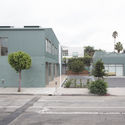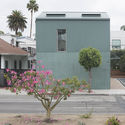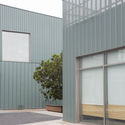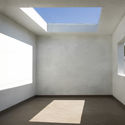
-
Architects: Part Office
- Year: 2017
-
Photographs:Anna Beeke
-
Architect of Record: Creative Space

Text description provided by the architects. The Fairfax garage project is the conversion and addition of a former mechanic and auto-body shop to a mixed use retail and office space through the exploration of typologies within the ambiguous setting of a Los Angeles mixed-use district.






























